#keithwood
Text
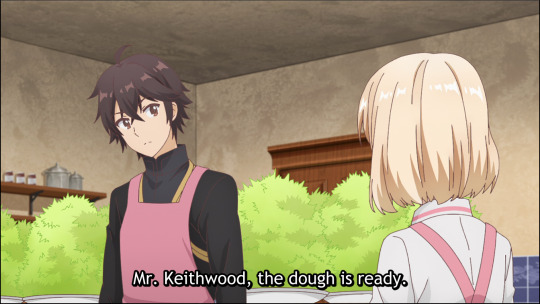



#tearmoon empire#tearmoon teikoku monogatari#mia luna tearmoon#keithwood#this whole bit just cracked me up#girl's got horses on the brain#after all with a horse you can go anywhere
34 notes
·
View notes
Text
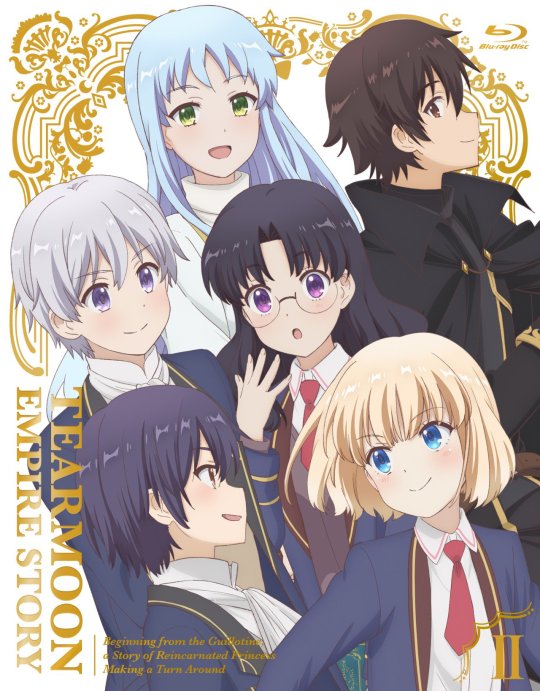
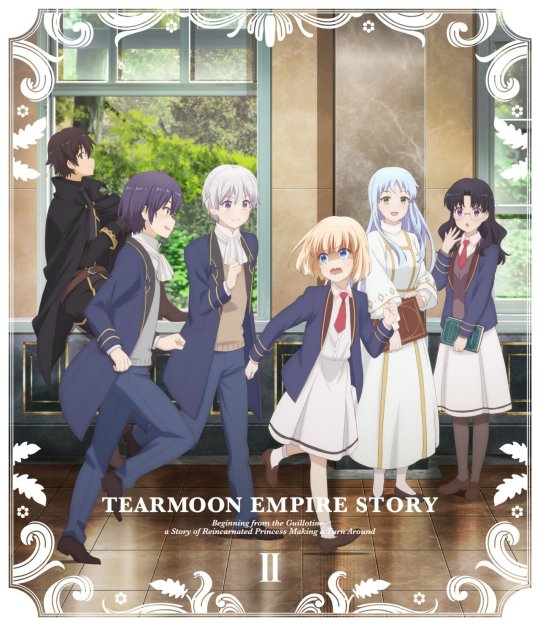
#oficial art#ティアムーン帝国物語#ティアムーン#tearmoon empire#tearmoon teikoku monogatari#mia luna tearmoon#tearmoon#tearmoon anime#mia luna#princess mia#mia tearmoon#tearmoon empire story#rafina orca belluga#abel remno#keithwood#chloe forkroad#sion sol sunkland
18 notes
·
View notes
Text
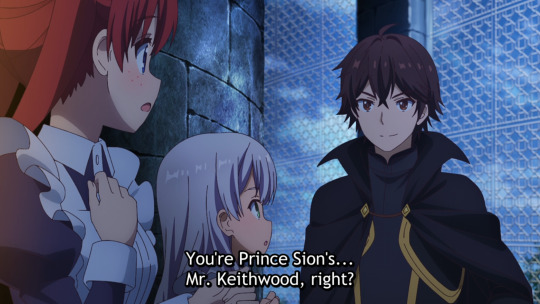
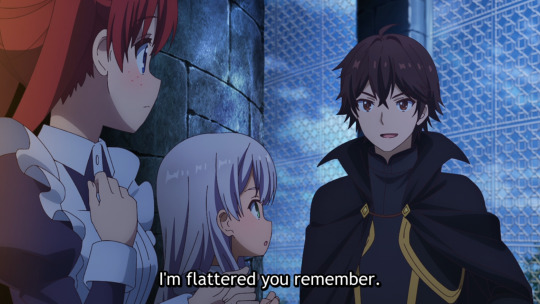
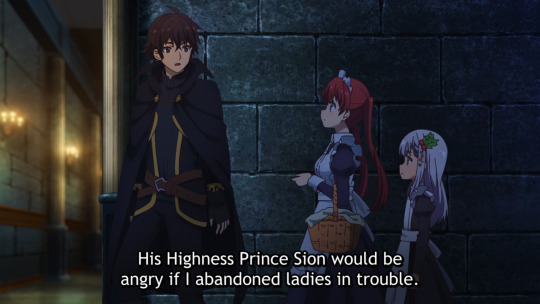
HmmmMMMmmmmm...
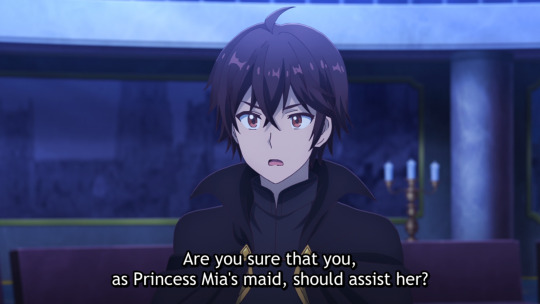
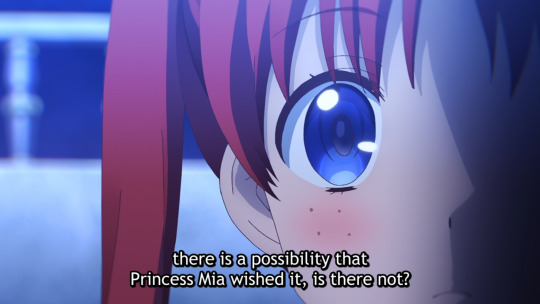
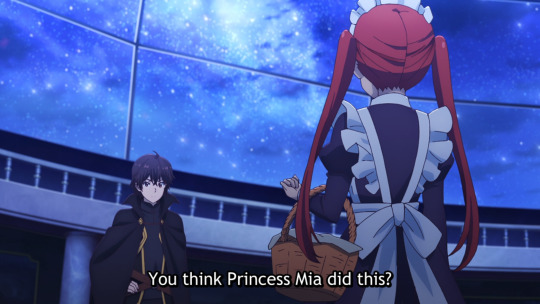
As Mia's right and left hands I've been quietly hoping Anne x Ludwig would become a side pairing, but Anne x Keithwood has potential too...!!! Some mild... well, not enemies to lovers energy exactly, but a bit of friction in the dynamics with Keithwood being so cautious of Anne's mistress... *wipes away drool*
#tearmoon empire#anne littstein#keithwood#anime screencaps#random babbling#curse my shipping heart#annewood??#littwood?#keithanne?#is there a name for them lol
9 notes
·
View notes
Text

#Tearmoon Empire#Tearmoon Teikoku Monogatari#Sion Sol Sunkland#Keithwood#My TE screencap captions#This really was just him in his Penal King era
7 notes
·
View notes
Text
youtube
“Tearmoon Teikoku Monogatari” The Second Promo
A second promotional video was announced by the Tearmoon Teikoku Monogatari: Dantoudai kara Hajimaru, Hime no Tensei Gyakuten Story (Tearmoon Empire) official website. The isekai fantasy light book by Nozomu Mochitsuki will be the subject of an anime series that will premiere on Tokyo MX and BS11 at 1:00 a.m. on October 8 before moving on to MBS.
#tearmoon teikoku monogatari dantoudai kara hajimaru hime no tensei gyakuten story#tearmoon teikoku monogatari#dantoudai kara hajimaru#hime no tensei gyakuten story#tearmoon empire#tearmoon empire anime release date#keithwood#liora lulus#chloe forkroad#dion alaia#anime#anime news#Youtube
2 notes
·
View notes
Photo
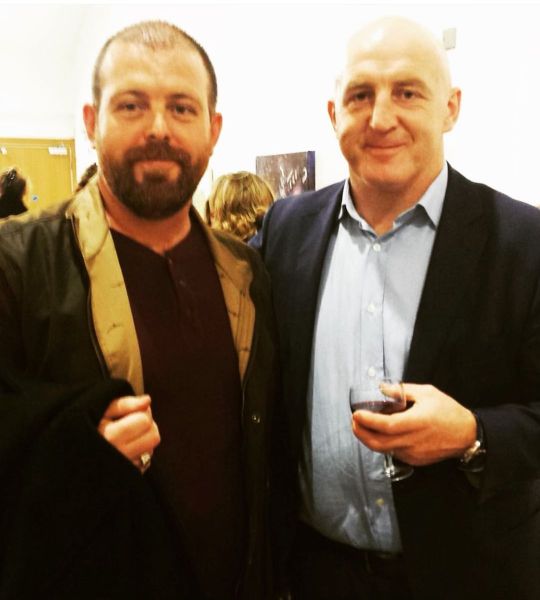
#artistthomasdelohery #thomasdelohery @thomas_delohery and #keithwood #munsterforever #richardharris #filmfestival (at Limerick City) https://www.instagram.com/p/CoKMlfMSaWtUxgqGl5KRHlq2iaW0gAUbq8XVV00/?igshid=NGJjMDIxMWI=
0 notes
Photo
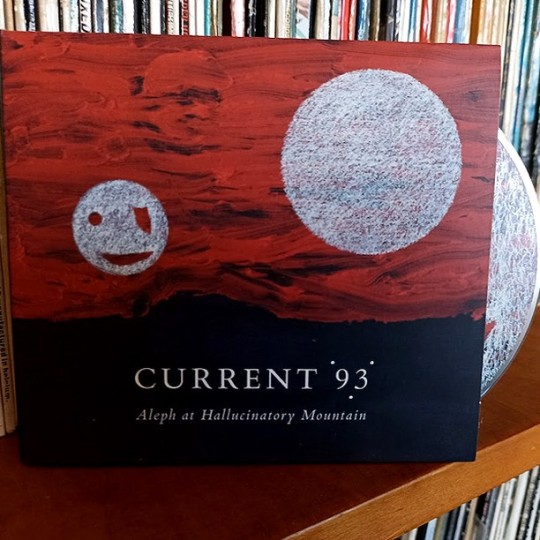
[Aleph at Hallucinatory Mountain] [Current 93] [2009] [CD] captivating, melodic, graceful, surprising, fascinating and overwhelming, another best album of this exceptional band! Please don't try to explain, just listen and let it work! . . . . . Poppyskins . In the kindness of the playground Aleph unveiled his claws As Pazuzu scrolled into town Murderer Murderer Murderer Small of Destroyer and fierce in his poverty My back is broken by his teeth . On the mountain I as He rested The streams bite into the rocks Fissures gleaming with transparent blood Water mimicking the temple Teeth shuddering in the ghostlike face Of the faminedeliverer The locustbringer Adam . The poppyskins were the clothes on the skin Raw as wind Pink like jets Red like the Bibles drifting in the streets Folded leather Sebek Root Sebek . All the cuneiform all the clay face The wedges stuck in my heart And spelled: "The Murderer is here Cain is here, and brings strange graves And pens with poison The lands he hands to sheep or goats Clustered on the rock bleating for gold And mammon . Cain is here His breasts torpid Beasts dissolving in the deserts Smog and promise and the icon Leaching wax or rubber Smiling wordlessly "Oh Aleph where are you And your whirling arms and the patience That took you a trillion years and spears and so Beak fear and harbour and trains"
#davidtibet#jamesblackshaw#williambreeze#ossianbrown#johncontreras#babydee#andriadegens#sashagrey#andrewliles#alexneilson#rickieleejones#alicerousham#henryrousham#stevenstapleton#mattsweeney#andrewwk#keithwood#stonerrock#doommetal#dronemetal#darkfolk#electronic#psychedelicrock#psychedelicfolk#industrialmusic#experimentalmusic#postindustrialmusic#neofolk#apocalypticfolk
1 note
·
View note
Link
#DeepState#Doppelregierung#KeithWoods#MichaelJ.Glennon#NationaleSicherheit#Tiefenstaat#TieferStaat#USA
0 notes
Text

"Congrats to the cookers who held a space last night where they welcomed white nationalists Elijah Schaffer, antisemite Keith Woods, Neo-Nazi Joel Davis, an account with a Nazi sonnenrad profile pic, antisemitic Nick Fuentes fans all pushing the Jewish question to over 800 people"
#cookers#cooked#whitesupremacists#whitenationalists#Elijah Schaffer#antisemite#keithwoods#neonazi#joeldavis#nazi#sonnenrad#nick fuentes#jewish#nazisploitation#nazis#neofascism#far right#right wing extremism#right wing terrorism#right wing politics#right wing women#right wing bullshit#fucknazis#antinazi#antinationalist#bigots#hypocrites#ausgov#politas#auspol
0 notes
Text
unfortunately my favourite in tearmoon empire story is the guy with the stupidest name. i love him but god why did the author name him keithwood.
9 notes
·
View notes
Text





My spirit board came, and I’m very happy with it.
3 notes
·
View notes
Text
BtT Light Novel Club Chapter 20 (Part 2): Tearmoon Empire, Vol. 1

And here is the second part of our discussion on the light novel Tearmoon Empire, Vol. 1! If you haven’t yet, please check out Part 1 of our discussion first.
We’ve got a lot to talk about, so let’s jump right in! Just like with Part 1, Jeskai Angel and Gaheret are joining me in the discussion.
-----
4. Is there a “god” in this story?
Jeskai Angel: It would easier to write off references to deity as a way to evoke Roman Catholic France…if there weren’t so many examples. One of the last things OG Anne says to Mia in the original timeline is, “I pray that the gods will smile upon you. May you go with their blessing.” Immediately afterward, Mia dies and travels back in time. Coincidence? Ludwig thinks “Surely, she is a great leader bestowed upon us by the heavens…” The narrator makes light of this, but is attributing the situation to a god really so farfetched? Mia died then traveled back in time eight years, accompanied by a diary stained by her own blood. How? Why? While gods don’t come up in a major way, the visit to the church in the slum is another reminder of religion. After Mia arrives at the academy, the escort captain says “May God be with you in your new life at the academy.” Well, Mia is living a “new life” in more ways than one, and again I must ask: how? I couldn’t help but ponder whether the chill Mia feels when she almost ignores Tiona, that sense that she was at a crossroads, “almost as if… As if the decision had already been made,” might be providential guidance. The narrative here doesn’t mention any god, so maybe I’m reading too much into the scene though. On various occasions people compare Mia to the moon goddess, which doesn’t prove much, but is another way the story keeps reminds us about the idea of gods.
There’s also the Duchy of Belluga / its ruler. They form a clear analogue to the pope / the territory historically ruled by the pope, sometimes called the Papal States. It’s played for humor when Mia writes in her diary, “Basically, being the wise person that I am, God in all His Greatness saw fit to make me the chosen one…To put it simply, it is my duty to save the Empire.” Leaving aside the “wise person” bit, remember we’re dealing with postmortem time travel. Is it really that unreasonable for Mia to see divine providence in this?
Again, maybe all these examples are just meant to give the setting the flavor of eighteenth century Roman Catholicism and don’t imply anything about an active role for deity in the story. But I wonder.
Gaheret: I think that there are three ways religion is present in the story: first, as all time travel stories (I would argue), this is a story concerning a fate or vocation. In this case, it is a vocation. Mia is called to be a force for good, and directed towards that end by Providence. And there is a physical reminder of that mission: the diary. I find it sort of odd that the diary would keep changing, taking into account what she does to the timeline, yet she does not expend all day reading it and searching for a way to change what will happen the next day, given her approach to the rest of what is happening.
The other two are: as a force for justice and charity, which clearly presides both the approach of Rafina and that of the international church which aids in preventing the plague and adopts an orphan boy. Placed at the slums, it works for the poor.
And as a political force, given its role in Rafina´s kingdom. We still don´t know the specifics, it is true. There is a moment when Mia is on the verge of praying, but she does not, and as Jeskai notes, at first she comically reflects that she is chosen by God. Which, being this kind of story, must be literally true. I wonder what will happen if Rafina, Keithwood and the rest will think if they learn of Mia´s experience, and how will they square it with the rest of their beliefs, of which we do not know much.
stardf29: Well, when it comes down to it, there are two clearly supernatural elements in play in the story here: Mia’s return to the past, and also the diary that tells her how events will lead to her execution, which even changes as she performs different actions to account for those and show how they might still lead to doom. With no other obvious magical elements in the story, I have to assume that there’s at least some “god” that is at work here.
The question then is, based on that assumption, how much that god is like the Christian God. The thing here is, we have a situation where this “god” seems to have turned back time in order to change the course of history. Now, the whole concept of time travel is one that is very hard to grasp due to how it seems nearly impossible in real life, to say nothing of its philosophical/theological implications. Is this an actual rewind of time? Is this an alternate universe that had followed the same events of history until the point where Mia basically gains the knowledge of events in a parallel universe? Or was Mia’s past life beyond her reincarnation point basically just one long and extremely visceral prophecy that never actually happened, which was shown to her alongside the diary in order to avert a terrible fate? Each one would have different implications on what the “god” of this world is like. And really, at this point, I have no idea what the case is here. I’m definitely curious on this point, but for now, I can at least appreciate that there are higher powers in play here.
Jeskai Angel: I found it curious that throughout the book, there seemed to references to a variety of deities. One is just called “God.” Another is identified as the “moon goddess.” And there’s also broader mention of “the gods.” It’s unclear to me for now which if any of these is actually “real” in-story.
5. This novel seems to take inspiration from European history, particularly the French Revolution. What do you think about the similarities and differences between the story and the history of our world?
Jeskai Angel: Tearmoon Empire uses its background material quite well. This is not historical fiction, thankfully, just fiction loosely inspired by history. The author paints in broad strokes, piggybacking on popular knowledge of the French Revolution to help tell the story, without being slavishly beholden to historical minutia. A great example of this is the “Let them eat meat” quote attributed to Mia. Marie Antoinette never said “Let them eat cake,” but the quote is so strongly identified with her at a pop culture level that putting a paraphrase of it in Mia’s mouth becomes an effective way to tell readers Mia should bring to mind this historical figure. The rest of the book is similar, using historical allusions or resemblances to give readers a feel for the setting and characters.
I also love the overall premise, using fiction to give a happy ending (or so we hope!) to a tragic historical figure. About a decade ago, I took a course on the French Revolution at FSU, under Professor Rafe Blaufarb. It was my first time studying the French Revolution in any depth, and I came away feeling a lot of sympathy for Louis XVI and Marie. So a story where Marie Mia goes back in time to avert the revolution strongly appeals to me.
stardf29: All I’ll say here is that, whereas it seems like for you two, your interest in the French Revolution got you more interested in Tearmoon Empire, for me, it was the opposite: Tearmoon Empire got me more interested in the French Revolution. So that’s +1 for light novels encouraging academic learning. Yay!
Jeskai Angel: I like that Mia and the Tearmoon government more generally are not simplistically presented as evil. Some are rotten apples, as we see at the highest levels of the nobility, but they weren’t all horrible people. Some, like Ludwig, meant well but lacked power to effect change. Some, like Mia, simply aren’t equipped to deal with the disaster. She was selfish and arrogant in her first life, but hardly a monster. It’s impossible to celebrate her death as the story opens, only pity her. Especially in the first timeline, Mia was flawed yet also faced unfair condemnation. This again fits nicely with history. Despite a few philosophers braying about absolute monarchy, in actual practice Louis XVI’s power was far from absolute. (If France really had been an absolute monarchy, maybe the revolution could have been prevented!) Like Mia, Louis and Marie were not educated and equipped to deal with the challenges they faced. Many of the problems related to the revolution preceded them or were beyond their control. They were flawed and made mistakes, yes, but they weren’t evil monsters who deserved to die.
Gaheret: Yes. And even if that was not the case, the tyranny of the revolutionaries was far worse than that the government of the Monarchy. It actually lead to a period of madness and totalitarian terror, followed by an actual Emperor, Napoleon, that created an actual secret police, tried to conquer the world and assasinated the Duke of Enghien. Among other things, because the old France, with all its flaws, actually had some checks and balances between aristocracy, monarchy, the cities, the customs, the Church…
Jeskai Angel: True. So much unnecessary bloodshed and death.
Gaheret: Discrimination among the three states was one thing. A national Church, the Terror and the massive murder of priests, nobles and people of La Vendee was another, and far worse.
In the case of the Tearmoon Empire, things may be more different, but I´m all for Mia.
6. To what extent do you consider Mia “selfish”? Does her acting primarily out of self-interest diminish the value of her actions?
Jeskai Angel: This comes back around to the issue we keep harping on, that Mia is an impressively realistic example of how complicated we humans are. Undoubtedly, some of what she says and does is ultimately motivated by selfishness. Where the narrator goes wrong, in my view, is in talking as if that selfishness negates everything else. She was selfish, period, end of story. I don’t think that works.
When Mia drags her retainers to the slum and gives away an expensive piece of jewelry to help fund medical care for the indigent, there was certainly some selfishness involved (e.g., I don’t want to die on the guillotine again). But as you read her words on this occasion, is it really plausible that she was acting for purely selfish reasons and completely inadvertently spoke in a way sounded more benevolent? Again I remind the jury that the narrator never suggests Mia was a liar who schemed to trick people into thinking she was kind and good. The narrator just claims Mia is a doofus who expresses herself poorly.
When Mia first encounters Tiona and stands up against the bullies, there was certainly some selfishness involved (e.g., I don’t want to die on the guillotine again). But as you read her words on this occasion, is it really plausible that she was acting for purely selfish reasons and completely inadvertently spoke in a way sounded more benevolent? Again I remind the jury that the narrator never suggests Mia was a liar who schemed to trick people into thinking she was kind and good. The narrator just claims Mia is a doofus who expresses herself poorly.
What is more plausible? That Mia is such a derp that she tries to be selfish and keeps failing at it by accidentally sounding wise and compassionate without meaning to? Or that she isn’t purely selfish and her fine-sounding words and deeds are more genuine than the narrator, and perhaps Mia herself, realize?
I think again of the how before Abel’s fight, Mia tries to think of something clever and diplomatic to say…and then wishes him victory, and, according to the narrator, “let slip her true thoughts.” There’s something similar in the scene where Mia tries to convince herself that Abel is just a little kid and there’s nothing special about being with him, and is puzzled with herself as to why she would be so flustered. Is it not reasonable to suppose to that on other occasions, too, Mia’s motivations may have been less purely selfish and more complex than she and/or the narrator realize?
I think of Jesus’ teaching that a tree is known by its fruit. Mia promotes Anne and protects her from workplace harassment. Mia prevents a good civil servant from losing his job and being banished to the hinterlands for trivial reasons. Mia personally leads an effort to provide medical care for the poor by visiting the slum with her retainers and donating that valuable jewelry. Mia saves Elise’s life by becoming her patron and ensuring she’ll have the income she needs to survive. Mia protects both Tiona and Abel by standing up to bullies (notwithstanding how cowardly the narrator says she is). Mia befriends friendless Chloe. Would a person who isn’t good, and who isn’t trying to look good in front of others, really say and do all this stuff? Going by the “fruit test” Jesus taught, I feel compelled to suspect there’s more good in Mia than she or the narrator are willing to admit.
Yes, there’s some selfishness or other ill motives mixed in, but the same is true for every one of us. Why do we obey God? Because we fear God’s judgment? Because we love God himself? Because we want to avoid a guilty conscience? Because we want to go to heaven? Because we want to look like good people to others? Because…etc.? Who but God can hope to answer these questions? But if partially tainted motives are enough to devalue one’s actions, then nothing anyone does ever has any worth. This is part why reading this book was so powerful for me. As I read this work of fiction, I can see how wrong it is for the narrator to harp so much on Mia’s flaws & use them to ignore or minimize her virtues. And I could see that the same is true of myself. Do I ever act out of purely virtuous motives? Probably not. But that doesn’t justify treating everything I do as having diminished value. I want Mia’s good deeds to matter, despite her selfishness and other flaws, because I want my efforts to do good to matter, despite my selfishness and other flaws.
Gaheret: I would add that, apart from these signs that she cares for others, Abel and Anne especially, saving yourself of three years of imprisonment and of being unjustly condemned to the guillotine is a perfectly reasonable thing to do. The narrator may say that she is a chicken, but it’s not him (presumably) who may go to execution at twenty. But the important thing, in my view, is that she is growing. If she sometimes does good deeds without realizing or intending them, that’s a sign of hope that one day she will, and a gift, too. I am interested in seeing her triumph against her defects, but I find her to be a very enjoyable character just as she is.
stardf29: Okay, so the reason I asked this question was because this book made me think of something. Mainly: is it really that bad to be self-interested? After all, one can argue that all of our actions, even our most “selfless” ones, are ultimately done in our self-interest: we help others at the expense of our short-term interests because we believe doing so will be better for us in the long term. Even something like following Christ and living a Christian life is something Christians do because we believe it is both the best way to live our present life, and also because we believe in great things in the next life.
Maybe, what we think of as “selfishness” is really just “short-sighted self-interest”: doing things only for what we can gain in the short term, without thinking about how it might ultimately hurt us in some way or another. And that leads us to Mia…
Mia’s actions might be supposedly “selfish”, but what is the big difference between her actions in the current timeline versus the past? It’s that now, she’s acting with a far more long-term view of things, in particular how certain actions made with short-term gain in mind may lead to her head rolling in the future. And with that view in mind, the vast majority of her self-interested actions become very helpful to the people around her as well as herself. And that view, likewise, kickstarts her mind into starting to be considerate of others.
The fact that she’s still mainly thinking of her own interests makes for some good comedy, but I think it also reveals an interesting truth in that being self-interested isn’t bad in and of itself. The key is what we decide our self-interests are, whether they be short-term benefits that can bite us later in life, or long-term goals that help us grow and prevent (sometimes literally) painful regrets. And while Mia has room to grow in this way, having a self-interest of “avoid a revolt that will get my head chopped off” is quite a huge… head start.
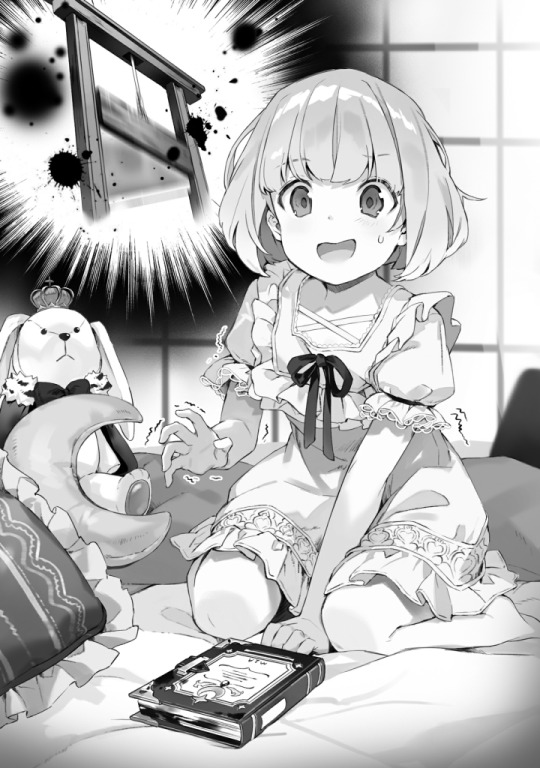
…I don’t think Mia liked that pun. My apologies.
On that note, one specific example that sticks out to me right now: Mia selling her prized hairpiece in order to help fund a hospital. Her motivation might have been as simple as “that way it won’t end up in the hands of those horrible revolutionaries”, but in that moment, Mia has grasped one of Christianity’s big teachings: the impermanence of physical possessions. Heck, that’s something even I admittedly struggle with sometimes, and Mia has grasped that concept pretty much perfectly. I can’t see that as anything but admirable.
Jeskai Angel: I think maybe the difference between enlightened self-interest and selfishness is not time (i.e., long-term vs. short-term benefits), but that the former does not exclude looking out for the interests of others, and the latter does. A person can act partially out of self-interest without elevating their interest above the good of everyone else, but a truly selfish person is always willing to prioritize themselves over anyone else.
stardf29: I agree with you, but that does bring up an interesting thought: perhaps always prioritizing ourselves over others is the most damaging thing we can do to ourselves.
Also, when I say “short-term” versus “long-term”, I’m not strictly speaking about time, but “scope” in general. Which includes more than just time, but also things like our emotional well-being and other psychological factors that one could probably do an entire graduate thesis on. There’s probably a better phrase than “long-term/short-term” here…
Jeskai Angel: Maybe “long-term” = effort to consider all the consequences, “short-term” = paying attention only to desired consequences?
Gaheret: Well, Aristotle would say that we always move when attracted by goods, which are goods for ourselves and also open to others, as common goods. Freedom consists in the ability to choose one of these goods over others, and a good use of freedom would be the “right reason”, which brings us to the best we can achieve, integrally considered. Good things usually give us some pleasure and are also beneficial in the long term, because they are in accord with our nature. Beyond Aristotle, one could say that such a decision can also be a vehicle of love: you choose to bring good things to your friends that you share, in a way, to remove obstacles, to enjoy reality… Ideally, growing in virtue means also learning to be attracted by higher goods and enjoy them more fully. So, there is always some good for us, direct or indirect, in helping others. We are not totally disinterested: only God is, because God does not need anything, and gives of His abundance.
So, in this view, the problem with being an egoist is that either one does not follow the right reason because of a blind spot concerning others, as in the one who eats all the cake when it would be best to enjoy it together, or that one loses part of the good he could enjoy. For example, if Mia defends Tiona without thinking about Tiona herself, she gets less of that interaction that if she appreciated the good there is in defending others when they need it.
This sometimes happens to her, but less and less. She is not so clueless now, and growing.
7. What are your favorite quotes or moments from the novel?
Jeskai Angel: How am I supposed to answer this?! There are SO MANY wonderful lines and scenes in this book. For sheer awesomeness, I think it’s hard to top the scene where Mia rescues Tiona from the bullies:
“Excuse me, but what exactly are you girls doing? …It seemed to me that you were behaving rather rudely toward one of my subjects. …You see, I love all my subjects, and I love them equally. Even the child of the poorest beggar shall not be denied my affection. No matter who they are, so long as they belong to the Empire, I will not condone any discourtesy toward them.”
If any scenes rivals the above, it might be the duel between Abel and The Artist Formerly Known As Remno’s First Prince, especially after Abel hears his brother trashtalk Mia and threaten to abuse her:
“‘You can call me whatever you want. Mock me. Insult me. I don’t care. But,’ Abel stared at his brother with a piercing gaze, ‘if you say one more bad word about Princess Mia…’ He thought of the girl known as ‘the Great Sage of the Empire.’ He thought of the light she’d brought to his world. For her to be robbed of that radiant aura… Was absolutely unacceptable. …’I won’t allow you to insult her any further!'”
Cue the OHKO.
On a humorous note, I’ll offer the scene before that fight: “Mia didn’t actually think badly of Abel’s brother. She… didn’t think anything of him at all, in fact. She’d completely forgotten he existed until this very moment.” What makes this so great is that throughout the book, Mia keeps forming connections she didn’t have in her first life, seeking allies, making a point of remembering names and faces; she is far more humble and caring and interested in other people than she was in her first life. She even remembers the names of other people’s servants! The ONLY person in the whole story she so completely disregards in her second life…is Abel’s brother.
Gaheret: When the worldbuilding started becoming evocative and unique for me: “The Azure Moon Ministry was the administrative agency for the capital city. The Golden Moon Ministry handled taxes. The Scarlet Moon Ministry was the administrative agency for the surrounding rural regions. The Jade Moon Ministry handled foreign affairs. Finally, the Ebony Moon Ministry commanded the seven armies of the empire”.
Despite not liking Sion on the whole, I agree with Jeskai that this fragment about him is quite compelling:
“To Sion, the ability to feel righteous fury — to be justly angry in the face of evil deeds — was an essential quality for those who reigned over the people. However, how many people could truly empathize with the suffering of others? How many could go as far as to feel anger as if they themselves had been wronged? Even Sion, who had been ready to step in himself, would have done so out of a sense of duty. It came from the mind, not the heart. Faced with Mia’s genuine anger toward injustice, he felt that he saw in her the makings of a ruler who truly lived up to his ideals”.
“Sion Sol Sunkland was born the eldest son of the King of Sunkland. “He who reigns over the people must believe firmly in fairness and hold justice close to his heart.”
This was funny, too:
“Unbeknownst to her, the “knowledge” that she was counting on was entirely based on the romance novel Anne’s sister had written. In other words… Not once did she suspect that Anne — five years her senior — was a complete novice at relationships who had never herself been in love before. “How promising,” she said, completely unaware of her terrible misconception. “With you at my side, Anne, I feel as though I’ve gained an army ten thousand strong!”
This was a great way to introduce a character:
“Abel Remno knew he was a loser. Likewise, he knew Remno was a second-rate kingdom. It possessed neither the rich history and tradition of Sunkland nor the sheer might of Tearmoon. Outmatched by even Belluga in influence and authority, it failed to garner any real respect from its neighbors”.
And this one, again about Abel:
“He focused every ounce of his efforts on one single thing. He raised his sword, and he swung it down. He repeated it. Then he did it again, faster. And faster. He devoted all his time to honing the motion. Ever since the night of the dance party, he’d done nothing else. Day after day, he poured his heart and soul into practicing that one swing. And now, after all the sweat and fatigue and pain, it was time. He swung. Today, he would conquer genius. Today, he would slay a god!”
stardf29: So as I mentioned earlier, one of my favorite moments is when Mia sold her beloved hairpin in order to help fund a hospital to prevent a plague. Two great quotes to go with this moment:
“No matter how precious the item, no matter how closely you try to hold onto it, there will be a day… It may go missing, or it may break… but its time will come. Knowing this, the most we can do is to use it well, and thereby give it meaning.”
And then, for something on the funnier side:
And not only was it stolen, it was stolen by a hooligan of a man, rude and violent and with entirely too much beard to be proper. Not that it’d be okay if she was robbed by a handsome fellow with a dashing crop of finely kempt hair, but anyway…
And then a bit later, during a tea party:
“Whatever I did, I did following my heart. There’s no deeper meaning to it than that.” Which was really just a more diplomatic version of, “What? I did it ’cause I wanted to. Got a problem with that, punk?”
Later on, Mia forgives a horse for sneezing on her:
“Oh please. Why would I possibly want to have a horse killed over a dress?”
For Mia, it was extremely obvious which one was more valuable. A dress couldn’t help her run from the revolutionary army. A horse could.
And, finally, the one point where I am in complete solidarity with the narrator:
Anne and Tiona seemed equally mesmerized by the two princes as they watched with wide, spellbound eyes. As for Liora… She poked at the meat in the sandwich, confirmed that it was well-roasted, and nodded to herself in satisfaction.
Liora, you see, was a girl who knew what was important.
8. Final Comments
Jeskai Angel: I want to express how greatly I appreciated many-short-chapters format of the book. So many LNs have like three 80-page chapters, and it’s stupid. Like, if the chapters are obnoxiously long, why bother with any chapter divisions at all? As Tearmoon Empire demonstrates, chapter divisions are not some kind of natural resource that needs to be rationed. The capacity to include another chapter break in a book is never depleted. Please, authors the world over, if you’re reading this, I beg of you, write using more but shorter chapters. Please and thank you.
stardf29: I think the whole “having lots of chapters” thing is left over from the novel’s origins as a web novel, where it’s more natural to just post a small chapter regularly. Though many such web novels, upon transitioning to light novel form, get several small chapters combined into larger chapters. So this might be more of an editorial decision. Maybe it’s because in Japan, light novels are still a largely physical medium, and combining chapters saves paper by reducing page breaks? It’s definitely better for e-books to have more chapters because it’s easier to jump to a specific part of the book with hyperlinked table of contents.
Whatever the case, looks like Tearmoon Empire kept all of its chapters in the transition to light novel form. Maybe it’s because each chapter has a witty little title? So maybe the real advice is not just to write lots of small chapters, but to give each chapter a title so that your editor has a reason not to combine them all into larger chapters.
Gaheret: I can´t wait for the next volume! I want it to go full French Revolution.
Jeskai Angel: According to the Amazon page for vol. 2 (which becomes available 19 July), the next book does feature a revolution.
Earlier when we were speculating about the narrator, someone (Gaheret, I think?) suggested the narrator might be an older Mia in the future. But I remembered a certain comment by the narrator, about how Mia disliked her bad ending so much, she restarted the whole game to play over again. It’s an obvious video game joke. But assuming Mia’s world is reminiscent of late 18th/early 19th century France, an older Mia wouldn’t have the frame of reference to make such a comment.
stardf29: Ah yes, there is that to take into account. So… maybe the narrator is one of Mia’s descendants, after Mia has told of her story to her family and they started to realize how things got misunderstood, and then as her story continued to be passed down the generations, that sentiment that she was “misunderstood” also got embellished. In this way, the somewhat unreliableness of the narrator can be explained.
As a final comment for me, I should say that I really like the illustrations in this volume. They are clean, cute, and show quite a lot of emotion. I definitely wish there were more of them, but we still got a good batch here.
=====
Whew, that was a lot to talk about! Of course, we would love to hear what you think about the novel, so post your own answers and thoughts in the comments!
As a reminder, we will be discussing Infinite Dendrogram, Vol. 4 next! The discussion for that will be posted on June 23rd. See you then!
#Light Novels#Christianity#Tearmoon Empire#Tearmoon Teikoku Monogatari#Articles#Author: stardf29#Author: JeskaiAngel#Author: Gaharet
3 notes
·
View notes
Photo

A perfect spot for my new #keithwood. #canadianartists
0 notes
Text
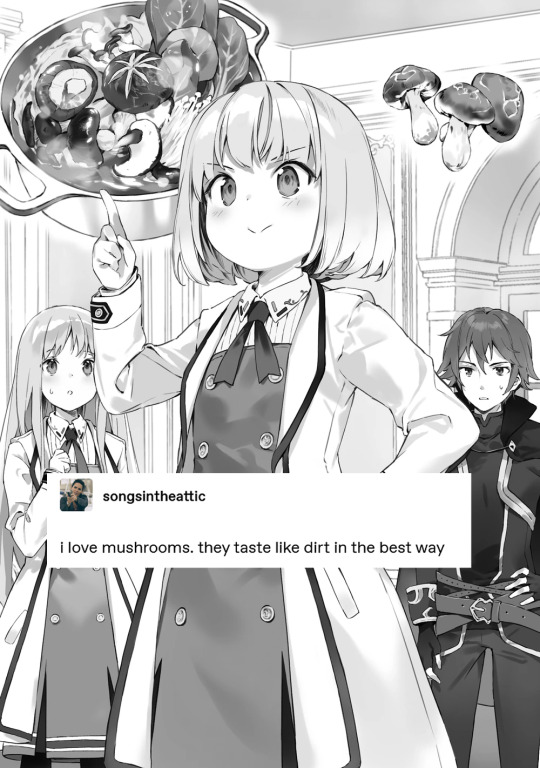
#Tearmoon Empire#Tearmoon Teikoku Monogatari#Mia Luna Tearmoon#Rafina Orca Belluga#Keithwood#My TE screencap captions#Spoilers#Light Novel Spoilers#Leah if you see this I'm sorry
4 notes
·
View notes
Video
youtube
The Distributist will join me to talk about a variety of topics and take your questions.
🔵 Superchats (offline chats will be read): https://entropystream.live/keithwoods
🔵 The Distributist: https://www.youtube.com/channel/UCdHT...
🔵 FInd all my links and ways to support here: https://linktr.ee/keithw
🔵 Crypto Addresses: https://cointr.ee/keithw
0 notes
Text
Tearmoon Empire, Vol. 4
By Nozomu Mochitsuki and Gilse. Released in Japan as “Tearmoon Teikoku Monogatari” by TO Books. Released in North America digitally by J-Novel Club. Translated by David Teng.
We’ve now had three books filled with Princess Mia doing something for either selfish or silly reasons (or, increasingly, because she is a very nice person) that ends up misinterpreted by everyone around her as pure brilliance, and we get plenty of that here as well. But we’re starting to also see the rest of the cast accomplish things away from Mia and have their own subplots. No, alas, I don’t mean Miabel, who’s still pretty much the mascot character of the series, and gets left behind for the second half of the book while the rest of the cast have a cruise. Instead, it’s Ludwig, thinking of some offhand remarks of Mia’s as well as what he thinks she would be doing in his place, that leads him to uncover a web of political intrigue that could end up crippling the Empire if things do end up happening the way that Mia predicts they will. His investigation and detective work is a refreshingly sedate part of this book. That said, rest assured there’s still a lot of Mia vs. reality here to love.
As with a couple of other Tearmoon books, the main plot is divided into two large chunks. The first picks up where the previous book left off: the school Mia had planned to start up is floundering, as ,most of the teachers and the headmaster have left. The answer is sadly obvious: Mia may be a very atypical noble now, but most nobles are far more like what Mia was in her previous “life”, and they are not having which this school where horrible farmers will be taught. To solve this, Ludwig suggests bringing in his former mentor, an eccentric old man whose grumpy tendencies and dislike of most nobles play right into Mia’s hands. After this, she is invited on a sea cruise to a tropical island by fellow noble Esmeralda, who IS like most nobles are – you will expect her maid to stab her in the face before the book finishes. Accompanied by Sion, Abel and Keithwood, all of whom supposedly go to “guard” Mia, they sadly run into a typhoon, leaving them stranded on an island that no longer looks as fun.
To get a big negative out of the way first, there is a subplot here about Mia getting a swimsuit for the cruise and realizing that she has tummy bulge, which unfortunately leads to a bunch of fat jokes, though Mia does end up losing most of the weight before the cruise itself. It’s not welcome. The rest of the book is filled with Tearmoon shenanigans, as most of the cast are content to listen to what she says and then make the most amazingly wrong conclusion imaginable, usually to the benefit of everyone involved. The semi-exception here is Keithwood, who knows Mia can be a flake, and is irritated with her mushroom obsession (especially as most of them are poisonous), but still regards her as a force for good. Which, honestly, she is. The narrative may frame Mia’s actions much of the time as self-interest or cowardice, but more and more we’re seeing Mia just be really nice to everyone – and get irritated when other nobles are not, as her anger towards Esmeralda’s treatment of her servant shows. Mia may be no Great Sage, but if things continue to go like this, she may make a very good leader.
The books are getting quite popular in Japan – the author talks about a stage play being made, and a 2nd one is due out this year – and it’s not hard to see why. Mia is fun, the books are exciting, there’s some good politics, and each book is long enough that you get a lot of bang for your buck. Hopefully fewer fat jokes next time, but otherwise still essential.
By: Sean Gaffney
0 notes